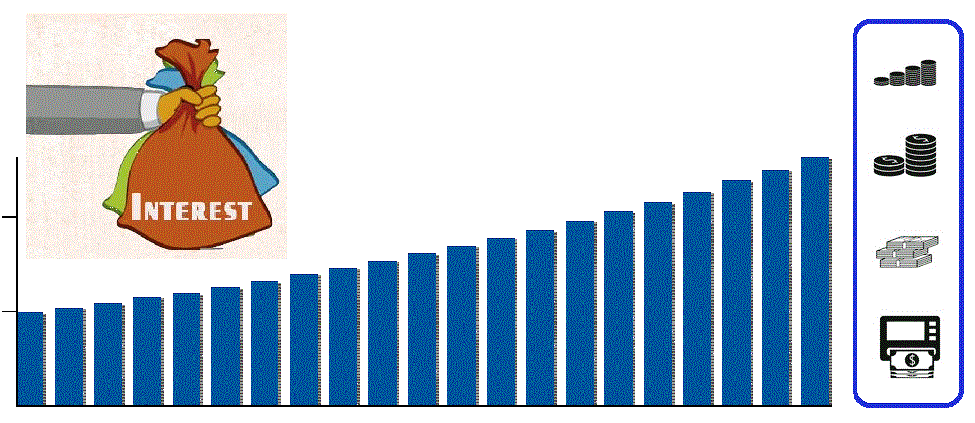It's March End. Plan it Now.
Lets figure it out together.
Today, we will discuss Some Tax Deductions for Salaried Resident Individuals.
I. SLAB BENEFITS (For Individual Salaried)
Income Tax Slab for Resident Individual for the age less than 60 years at an time for the Previous Year 2018-19 (A.Y. 2019-20)
Taxable Income Tax Rate
Up to Rs. 2,50,000 Nil
Rs. 2,50,001 to Rs. 5,00,000 5%
Rs. 5,00,001 to Rs. 10,00,000 20%
More than Rs. 10,00,000 30%
* Health and Education Cess is applicable @ 4% on tax (including surcharge), which is earlier known as Education Cess and charged @3%.
II. EXEMPTION BENEFITS BASED ON INCOME
There are some exemption benefits available without spending money towards it. It is based on nature of sources like HRA, Saving Bank Interest or generally available to all like exemption u/s 87A, 80TTA.
1. Section 87A
Deduction is allowed to Resident Individual having Total Income up to 3,50,000
100% of tax payable;
Rs.2500 , whichever is lower.
* This rebate shall be allowed before adding Health and Education Cess.
There are some exemption benefits available without spending money towards it. It is based on nature of sources like HRA, Saving Bank Interest or generally available to all like exemption u/s 87A, 80TTA.
1. Section 87A
Deduction is allowed to Resident Individual having Total Income up to 3,50,000
100% of tax payable;
Rs.2500 , whichever is lower.
* This rebate shall be allowed before adding Health and Education Cess.
2. House Rent Allowance (HRA)
Exemption under Section 10(13A) available for lower of following:
- Actual Amount Received
- Rent Paid- 10% of salary (Basic + Dearness Allowance + Turnover Commission)
- 40% / 50%* of Salary (Basic + Dearness Allowance + Turnover Commission)
*50% for the cities of Kolkata/Chennai/ Delhi/ Mumbai and 40% for the Other Cities.
4. Section 80TTA
This Section provides a deduction of Rs 10,000 on interest income
- From a savings account with a bank
- From a savings account with a co-operative society carrying on the business of banking
- From a savings account with a post office
III. EXEMPTION BENEFITS BASED ON INVESTMENT MADE.
Investment can be made to ensure the minimum income tax liability, not through the route of tax evasion but, with tax planing. Basically these are investments to promoted saving habits.
1. Section 80C
- Life Insurance Premium for the Individual himself/herself, spouse and children;
- Amount can be deposited in Public Provident Fund( PPF ) for assessee , spouse and children;
- Employee's Contribution to Statutory Provident Fund and Recognised Provident Fund;
- Amount invested in National Saving Certificate(NSC) as well as Interest accrued thereon are eligible for deduction;
- Repayment of Principal amount of loan taken Bank or Financial Institution for purchase or construction of House;
- Fixed Deposit in a Scheduled Bank or Post office for a period of 5 years or more;
- Tution Fees paid for Education of children ( Maximum 2 children);
- Deposit in Sukanya Samridhi Scheme Account(For individual Herself, or any girl child of individual, or girl child for whom such individual is Legal Guardian;
- Deposit in Notified Bonds of NABARD;
- Deposit in Senior Citizen Saving Scheme;
- Notified units of Mutual Funds or UTI;
- Notified Pension Scheme of UTI or Mutual Fund.
2. Deductions in respect of deposit to certain funds
Section 80CCC:
It allows individuals to claim tax deductions for contributions made to certain pension funds. This section provides tax deduction up to a maximum of Rs. 1,50,000 during a year on costs incurred in buying a new policy or continuing an existing plan that pays pension or a periodical annuity (as referred to in Section 10(23AAB). However, the pension amount received, including interest or bonus accrued on the annuity, is taxable during the year of receipt.
Section 80CCD:
(1) An Individual can save up to 10% of salary or 20% of Gross Total Income, if Contribute to Pension Scheme of Central Government/ New Pension Scheme/ Atal Pension Yojna,
(1B) An Additional deduction up to Rs. 50,000 shall be allowed other than contributions covered u/s 80CCD(1)
Total Deduction u/s Section 80C + 80CCC + 80CCD(1) is Rs. 1,50,000 & u/s Section 80CCD(1B) is Rs. 50,000.
3. Section 80D: Deduction in respect of Medical Expenses & Policies


4. Section 80E: Deduction in respect of Education Loan
Deduction in respect of Interest on loan for Higher education in India or abroad for a period of 8 consecutive years starting from the year in which assessee starts paying interest.
5. Section 80EE: Deduction in respect of interest on Housing Loan
In case of Loan, taken from Bank or financial institution for acquisition of residential property, the amount up to Rs. 50,000 can be claimed as deduction subject to terms and conditions.
6. Section 80GG: Deduction respect Rent Paid
In case, HRA is not received from the employer, and rent is paid deduction should be allowed for the lower of following amounts:
- Rs. 5,000 per month;
- 25% of Adjusted GTI; &
- Rent Paid- 10% of Adjusted GTI
Deepa Kaintura
DISCLAIMER:
All views expressed in this blog are my own and do not represent the opinion of any entity whatsoever with which I have been, am now or will be affiliated.
I am a Semi Qualified Chartered Accountant and this should not be considered legal advice. You should seek appropriate counsel for your particular case. And Please note that this post is for readers in the India.


Comments
Post a Comment